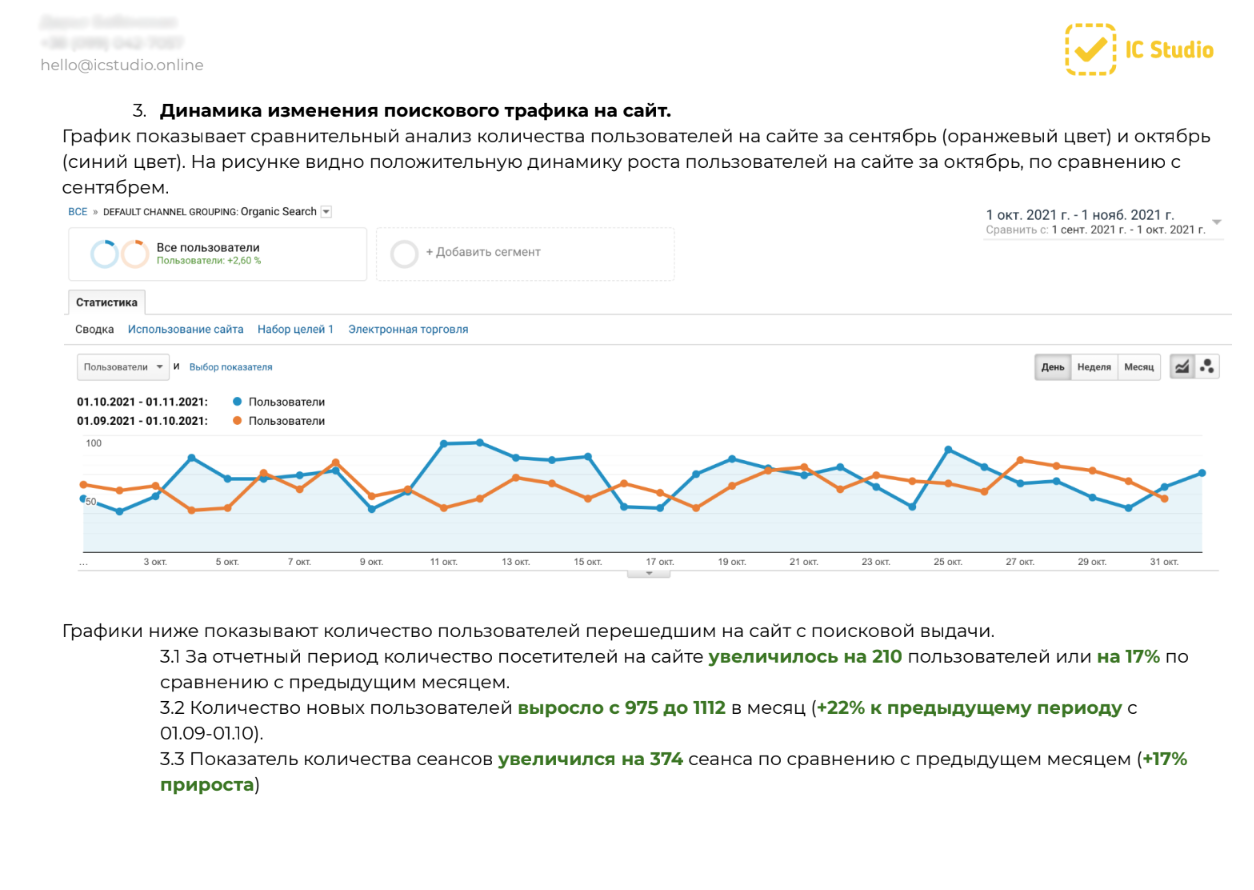
An example of auxiliary materials for the implementation of work on the SEO sites of client companies.
One of our company's core values is that we sell painkillers, not vitamins. That is why we take special care and scrupulousness to study the development path of the project "before" it came to us, to take into account the experience we have gained: we conduct an in-depth briefing, studying the company's product, strengths and weaknesses, resources and opportunities, key objectives and potential points of growth.
1. Initial diagnostic brief.
In the context of specific project development we are interested in everything: completed and uncompleted tasks, internal and external resources and infrastructure of the company, analysis of the results obtained, product matrix, sales funnel statistics, customer journey from acquaintance of the company to the first deal.
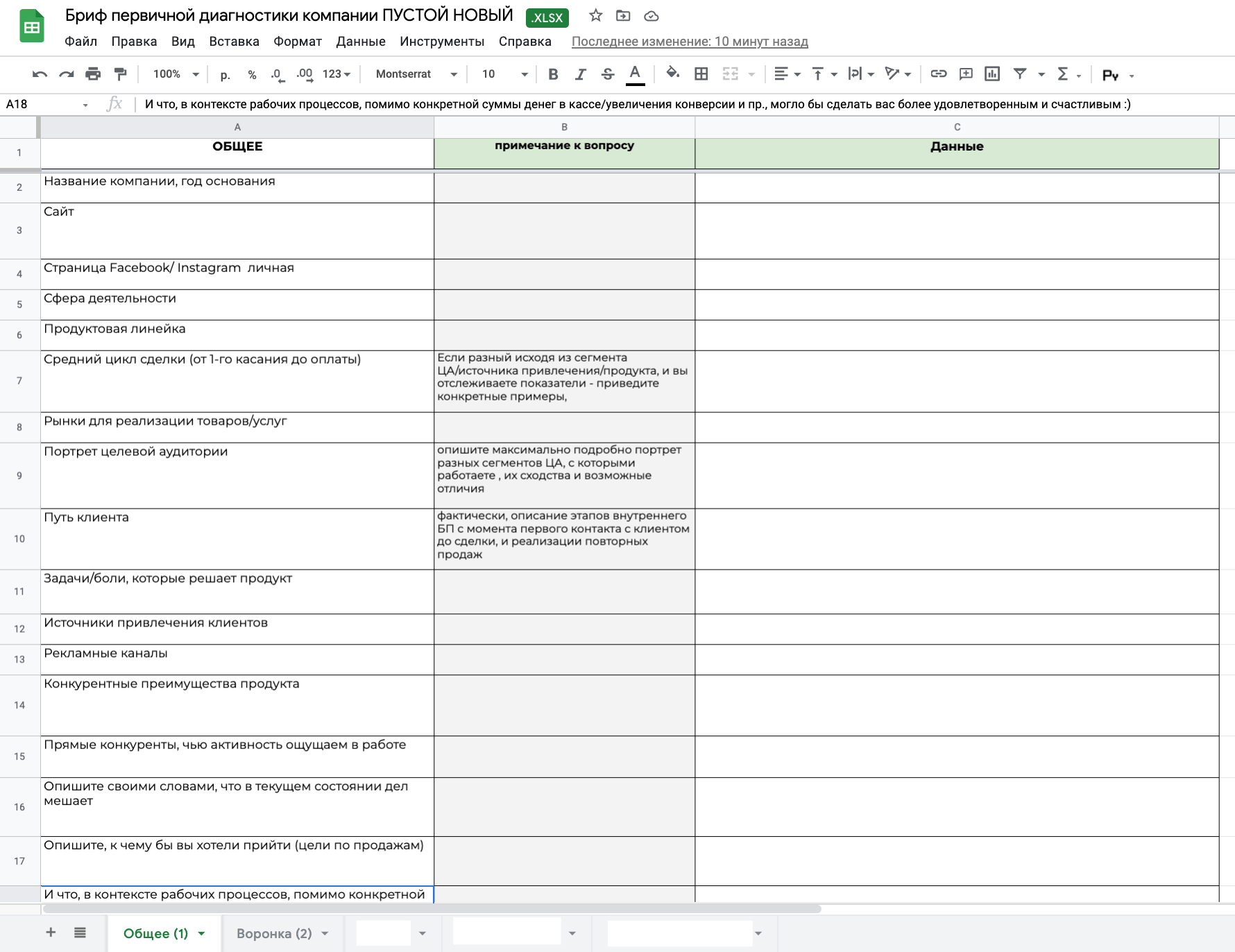
2. A list of control tasks before the start of the project.
Among other things, separately examine the history of failures that have occurred and the conclusions drawn afterwards, in order to exclude their repetition in the future.
Gain access to audit previous actions, examine the progress of tasks, strategy, reports.
We dive into the details in order to match our vision of growth strategy with previous experience.

We are interested in getting results and developing the project, so even before the launch we try to make sure that the customer's team has specialists who can set tasks and they will be competent to perform them. For example, a programmer. And not just any programmer, but a skilled one, who is able to perform the assigned tasks quickly and at the pace we need.
So, on one project, even on the stage of internal optimization of one client's site, we found out that the programmer we had hired to run the site did not have the necessary level of competence for a number of factors, so we opened a search for a new specialist, and helped the client to weed out the irrelevant candidates and attract a new, more competent specialist.
Before we start working on a project, we try to communicate with all the participants of the process - the performers inside the client's team, external performers, sometimes even holding meetings with the previous contractors (when it is possible and really valuable).
The goal of such a deep dive at the start is to remove any uncertainty before the launch, prevent possible risks, and assess what resources a company already has for successful SEO implementation and what additional resources may be needed.
3. Table of project roles and participants
On large projects, there is always a large number of tasks and coordination steps.
Where there may be 10-15 participants, on the one hand it is good when everyone is aware of what is happening, on the other hand it is not necessary to notify all participants about every intermediate step at once, especially when this is not their direct area of responsibility.
To make communication productive and convenient, we make a table of roles in the project, and clearly delineate areas of responsibility and describe who is responsible for what. This allows all participants to quickly orient to whom to address what questions, contact the responsible specialist directly, save time on solving the problem and influence the overall level of the team's efficiency.
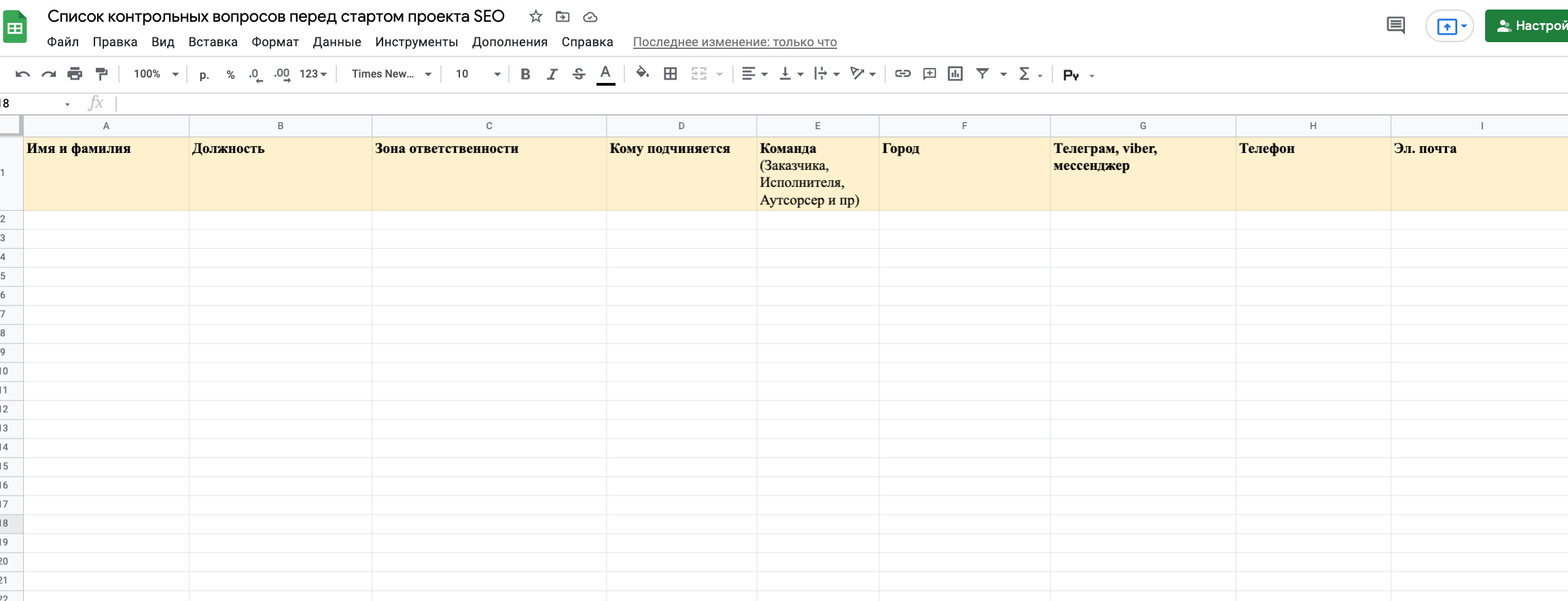
4. Project Pulse.
To save time and energy, we create a project in CRM and invite all participants to it.
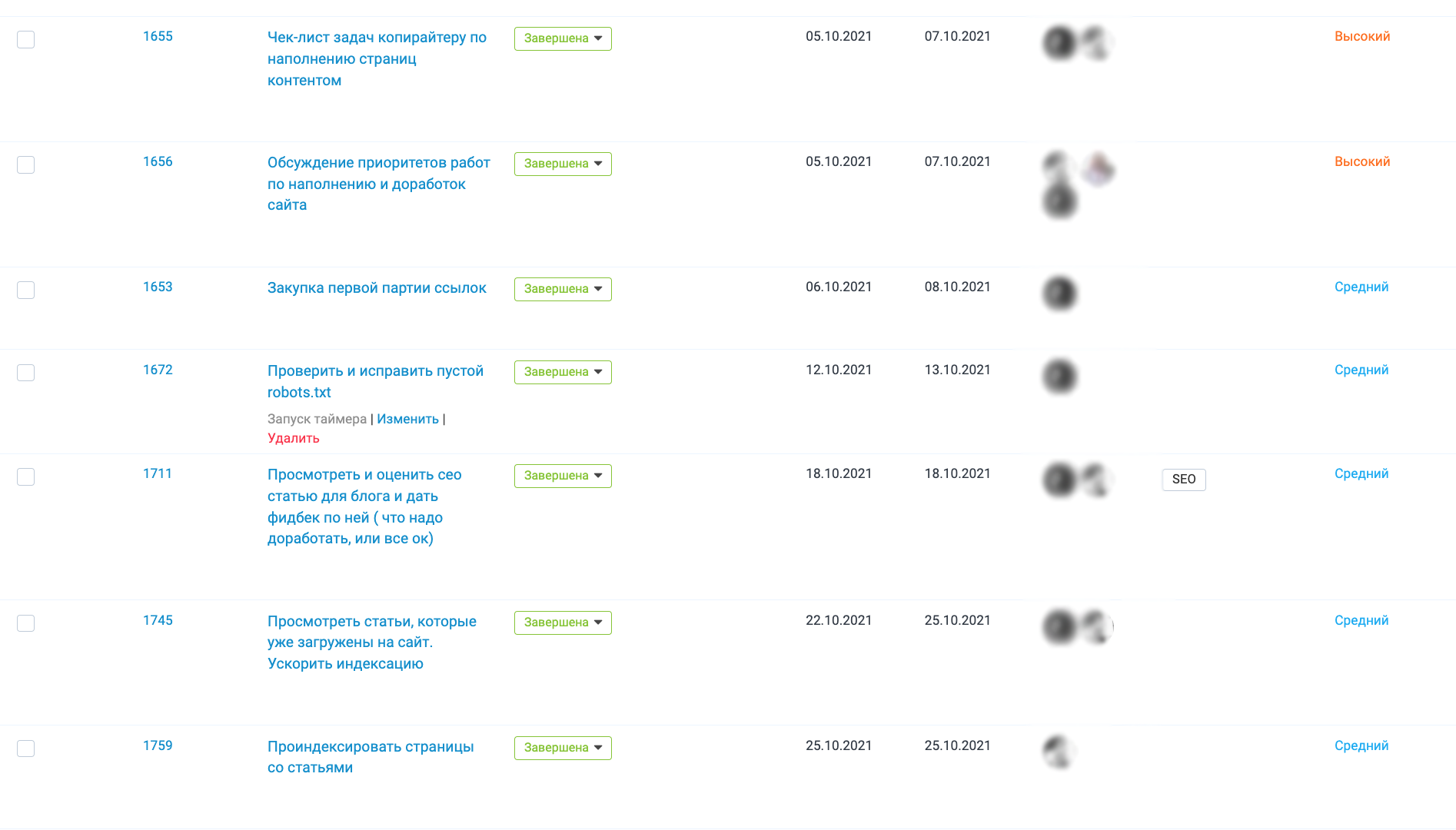
By arranging tasks in order of priority, urgency, and scheduling individual tasks, any participant will quickly and easily determine what stage we are at now, what open issues exist, which tasks have been successfully completed, and which are planned for implementation in the future.
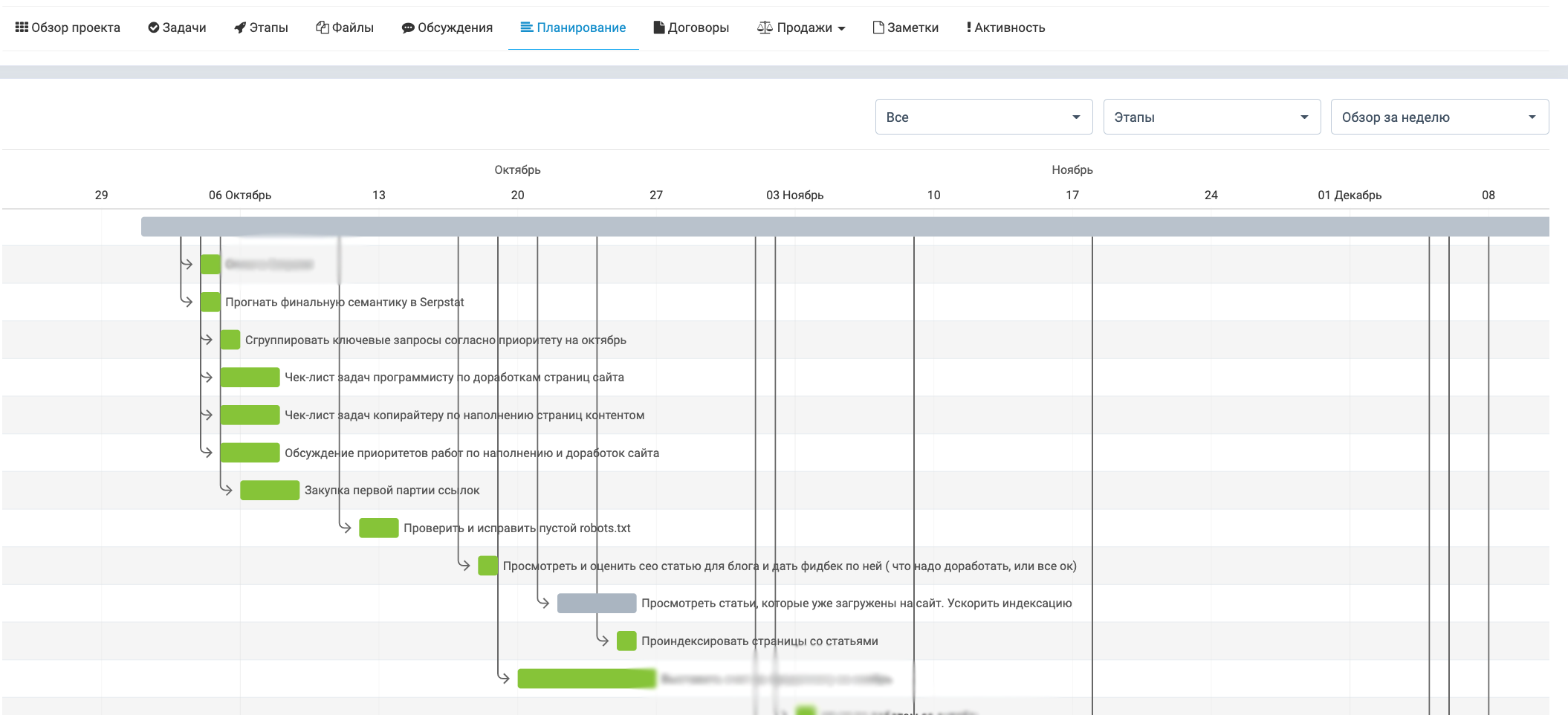
5. The format of regular reports.
Regular reports help to look at the project from the inside and assess which solutions and hypotheses have yielded the best results and which dynamics.
